Religion
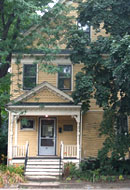 The Old New Jews
The Old New JewsWednesday, February 9, 2011 by Yehudah Mirsky | Jewish Ideas Daily » Daily Features
It has been 40 years since the publication of a slim but memorable volume of essays by young American Jewish radicals and intellectuals. The New Jews, edited by James Sleeper and Alan Mintz, sought to give voice to a small cohort at once deeply alienated from organized Jewish life and deeply attached to Jewish history and culture.
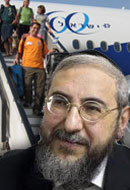 The Seed of Israel
The Seed of IsraelWednesday, January 26, 2011 by Aryeh Tepper | Jewish Ideas Daily » Daily Features
Until modern times, the boundaries of Jewish identity were cut and dried. If you were born to a Jewish mother, or if you were a convert according to Jewish religious law (halakhah), you were Jewish. If not, you weren't.
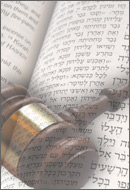 Law and Morality
Law and MoralityMonday, December 27, 2010 by Yehudah Mirsky | Jewish Ideas Daily » Daily Features
Are ethics and law at odds? Does the law define what is ethical, or do ethical concerns have their own purchase on the law? These questions, universally applicable, have special relevance to a religious culture like Judaism, whose traditional law is embodied in the vast corpus of halakhah.
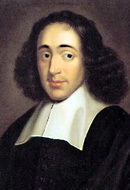 Secularism and Its Discontents
Secularism and Its DiscontentsFriday, December 17, 2010 by Yehudah Mirsky | Jewish Ideas Daily » Daily Features
The transformations of Jewish life in the last two-and-a-half centuries still boggle the mind. Deep ruptures opened to separate the present from the past, modernity from tradition, setting terms that have defined the contours of Jewish life until today. How did people try to think their way through the change?
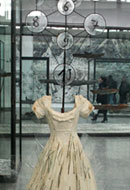 Kiefer’s Challenge
Kiefer’s ChallengeWednesday, December 15, 2010 by Richard McBee | Jewish Ideas Daily » Daily Features
The German artist Anselm Kiefer has once again taken New York by storm. Ensconced at the prestigious Gagosian Gallery, Next Year in Jerusalem, his latest show, has met with reviews ranging from the gushing to the grudgingly respectful.
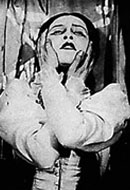 Of Devils and Dybbuks
Of Devils and DybbuksTuesday, November 30, 2010 by Allan Nadler | Jewish Ideas Daily » Daily Features
Many an enlightened reader of the New York Times must have indulged in yet another condescending laugh at the Catholic Church upon seeing a November 12 report about a conclave of bishops in Baltimore; the purpose was to discuss the urgent need for priestly experts in the task of expunging the devil from possessed parishioners. Among those chuckling, no doubt, were many Jews.
 A Jewish Renaissance?
A Jewish Renaissance?Monday, November 15, 2010 by Yehudah Mirsky | Jewish Ideas Daily » Daily Features
In recent years Israel has become a vast open-air laboratory for experiments in Judaism, re-fashioning rituals, reading old texts through new lenses, scrambling and fracturing familiar dichotomies between secular and religious. Secular yeshivot, mainstream performers singing medieval Hebrew hymns, non-denominational "prayer communities" in hip Tel Aviv, kabbalistic therapy movements, Judaism festivals on once-socialist kibbutzim—something is going on here, but what?
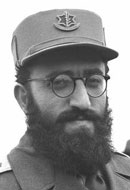 The Warrior Rabbi
The Warrior RabbiFriday, November 5, 2010 by Aryeh Tepper | Jewish Ideas Daily » Daily Features
Praise of military virtue, prominent in the Bible, is almost non-existent in the Talmud, which, in the aftermath of the destruction of the Temple and the exile of the Jews by the Romans, either ignores wartime feats or re-interprets them as allegories of intellectual or spiritual prowess. The Talmud's relative silence on the subject would prove enduring. Until the second half of the 20th century, with few exceptions, military virtue was consistently depreciated in traditional Jewish thought.
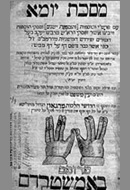 The Persian Talmud
The Persian TalmudTuesday, November 2, 2010 by Yehudah Mirsky | Jewish Ideas Daily » Daily Features
A recent gathering of scholars who have been intensely researching the buried treasures of "Irano-Judaica," together with the release of a volume titled The Talmud in its Iranian Context, underscores one of the most exciting developments in Jewish studies: the effort to put the "Babylonia" back into the Babylonian Talmud.
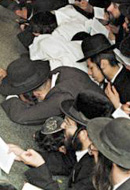 The Mad Mystic of Bratslav
The Mad Mystic of BratslavMonday, November 1, 2010 by Allan Nadler | Jewish Ideas Daily » Daily Features
Rabbi Nahman of Bratslav (1772-1811) is the strangest and most paradoxical leader in the history of Hasidism, and one of its most original, albeit mad, geniuses. Nahman has been an object of both literary fascination and considerable scholarly research. He also shares center stage with Franz Kafka (1888-1924) in Rodger Kamenetz's Burnt Books.
Editors' Picks
Losing Faith In America Peter Schotten, Jewish Ideas and Ideals. "Religion, society’s bedrock, is slowly but surely being eroded by the popular culture the Founders hoped it would support."
Court Jews Dov S. Zakheim, Jewish Ideas and Ideals. "To what extent does halakhah permit a Jewish official to sidestep normative rabbinic law and tradition?"
America's Most Hated David J. Rusin, National Review. Despite fears of a rise in Islamophobia, FBI records for the last decade show that fewer Muslims per capita have been the victims of hate crimes than homosexuals, African Americans, or Jews.
Ascending to Heaven James Tabor, Bible History Daily. Though Paul of Tarsus decisively broke with Judaism, his vision of heaven in the Book of Corinthians was not so different from contemporaneous Jewish ideas.
O Pioneers! Bentzi Epstein, Klal Perspectives. In 1992, four observant Jewish families migrated to Dallas in a bid to lay the foundations of a Torah community. Twenty years later, they have done just that.
More than Just God's Name Gil Student, Torah Musings. When God spoke His name to Moses, was He providing proof of His existence, as Rambam argues, or merely stating the qualities with which He would redeem His people?
Workers’ Rights Gil Student, Torah Musings. While Jewish law does not require an employer to offer severance pay to a dismissed employee, Rabbi Moshe Feinstein enshrined it as an American Jewish custom.
Beyond the Tanya Eli Rubin, Chabad.org. The Tanya, by Rabbi Shneur Zalman of Liadi, remains the foundational text of Chabad Hasidism. But it was Shneur Zalman's oral teachings that built a movement.
Original Dialectic Alan Brill, Kavvanah. Unlike most Jewish thinkers, Rabbi Joseph B. Soloveitchik acknowledged the doctrine of Original Sin—but argued that it did not corrupt man, but split him in two.
Moses’ Choice Gil Student, Torah Musings. Moses was chosen to lead Israel not only by God but, the Gemara says, by his mother. Still, unlike his enslaved brethren and even Pharaoh, Moses had the freedom to choose.

